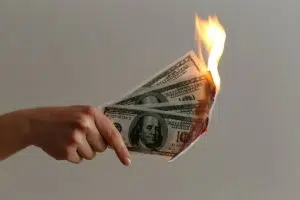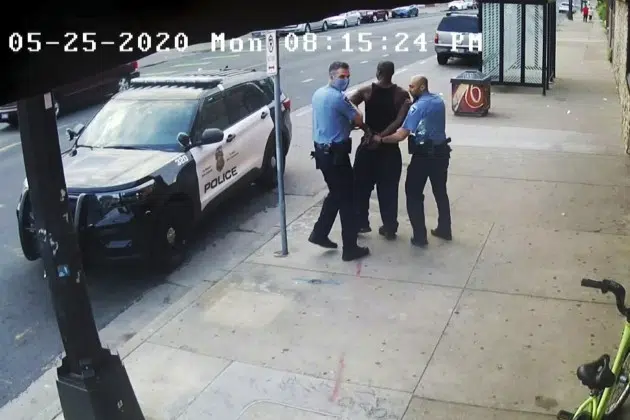ST. PAUL, Minn. (AP) — Three Minneapolis police officers charged with violating George Floyd’s civil rights sat by and “chose to do nothing” as Floyd pleaded for air and then went silent, a federal prosecutor said Tuesday at the start of closing arguments in their trial.
Prosecutor Manda Sertich singled out each former officer — Tou Thao, J. Alexander Kueng and Thomas Lane — as the state wrapped up its monthlong case.
Thao stared directly at Officer Derek Chauvin as Chauvin knelt on Floyd’s neck for 9 1/2 minutes, Sertich said, noting that Thao also ignored bystanders’ pleas to help a man who was dying “right before their eyes. She said Kueng casually picked gravel from the police SUV’s tire as Chauvin “mocked George Floyd’s pleas by saying it took a heck of a lot of oxygen to keep talking.” And Lane’s remarks showed that he knew Floyd was in distress but “he did nothing to give Mr. Floyd the medical aid he knew Mr. Floyd so desperately needed,” the prosecutor said.
All three are charged with depriving Floyd of his right to medical care as Chauvin pressed his knee into Floyd’s neck for 9 1/2 minutes. Lane held the 46-year-old Black man’s feet, Kueng knelt on his back and Thao held back bystanders.
Kueng and Thao are also charged with failing to intervene to stop Chauvin during the May 25, 2020, killing that triggered protests worldwide and a reexamination of racism and policing.
Prosecutors have argued that the officers violated their training by not rolling Floyd onto his side or giving him CPR, and by not intervening to stop Chauvin
Defense attorneys argued that the Minneapolis Police Department’s training was inadequate. They also attacked a police culture that they said teaches officers to defer to their seniors, saying that Chauvin called all the shots at the scene. Lane and Kueng, who were both rookies, argued that they deferred to Chauvin.
But Sertich rejected those arguments: “Officer Chauvin isn’t ordering these defendants around, he’s barely talking to them,” she said. “The officers knew George Floyd couldn’t breathe, and was dying.”
“Make no mistake, this is a crime.” Sertich told jurors, urging them to review videos of what happened, including the widely seen bystander video that triggered weeks of worldwide protests, because she said they show more than what any witness could describe.
Sertich contrasted the officers’ inaction with the desperate cries of bystanders pleading with them to get off Floyd and to check for a pulse: “Even though they had no power, no authority, no obligation, they knew they had to do something.”
Those bystanders, Sertich said, gave Thao and Kueng “play by play commentary” that should have raised their awareness that Floyd was in trouble — shouting that Floyd could not breathe, that he wasn’t responsive, and urging the officers to look at him.
During the trial, Lane testified that he asked twice if Floyd should be rolled over but was rebuffed, and that he held his position because an ambulance was on the way.
Kueng testified that Chauvin was his former training officer and that he had considerable sway over his career. He said he trusted Chauvin’s advice.
Thao testified that he was watching the bystanders and he trusted that the officers behind him were caring for Floyd.
Chauvin pleaded guilty in the federal case in December, months after he was convicted of state murder and manslaughter charges.
Closing arguments in the current trial were expected to take most of Tuesday before the case goes to the jury, which appears to be mostly white.
At the start of the monthlong trial, U.S. District Judge Paul Magnuson selected 18 jurors, including six alternates. Fifteen people now remain — 12 who will deliberate and three alternates. The court did not release demographic information, but the jury appeared largely white, with one woman who appeared to be of Asian descent, among the 12 expected to deliberate.
Lane, who is white, Kueng, who is Black, and Thao, who is Hmong American, also face a separate trial in June on state charges alleging that they aided and abetted murder and manslaughter.
The trial was wrapping up just as another major civil rights trial in Georgia resulted in the conviction of three white men on hate crimes charges in the death of Ahmaud Arbery, a 25-year-old Black man who was chased and shot in February 2020.
___
(Copyright 2022 The Associated Press. All rights reserved. This material may not be published, broadcast, rewritten or redistributed.)
Latest News







